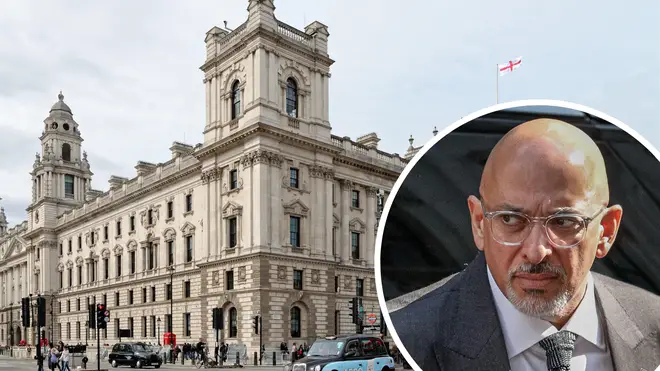
Richard Spurr 1am - 4am
21 July 2022, 08:03

Government borrowing jumped last month, hitting its second-highest ever June levels since records began as soaring inflation pushed up interest payments.
The Office for National Statistics said that borrowing was £4.1 billion more in June than the same month a year ago.
It hit £22.9 billion over the month as spending rose by £9 billion to £86 billion, mainly because interest payments increased by £10.3 billion compared to this time last year.
Chancellor Nadhim Zahawi, responding to the latest figures for Government borrowing from the Office for National Statistics, said: "We recognise that there are risks to the public finances including from inflation, with debt interest costs in June more than double the previous monthly record.
"That's why the Government has taken action to strengthen the public finances, and in their latest forecast the OBR assessed that we are on track to get debt down."
Read more: Inflation rises to fresh 40-year high of 9.4% as cost of living crisis bites

Treasury Minister reacts to inflation soaring to 40-year high
UK inflation surged to a fresh 40-year high last month as fuel and energy prices rocketed amid the cost-of-living squeeze.
The Office for National Statistics (ONS) said Consumer Prices Index (CPI) inflation rose to 9.4% in June, up from 9.1% in May.
This remains the highest level since February 1982 and heaps yet further cost pain on cash-strapped households and businesses.
Food and non-alcoholic drinks rose by 9.8% in the year to June, the highest rate since March 2009. Milk, cheese and eggs as well as vegetables, meat and other food products such as ready meals became more expensive.
Grant Fitzner, chief economist at the Office for National Statistics (ONS), said: "Annual inflation again rose to stand at its highest rate for over 40 years.
Read more: Supermarket shoppers face £454 extra to yearly grocery bill as inflation rises
"The increase was driven by rising fuel and food prices, these were only slightly offset by falling second-hand car prices.
"The cost of both raw materials and goods leaving factories continued to rise, driven by higher metal and food prices respectively.
"These increases saw raw materials post their highest annual increase on record, with manufactured goods at a 45-year high."
Rising prices for motor fuels and food were the biggest contributors to the increased inflation rate, according to the data.
Average petrol prices rose by 18.1p per litre in June, the largest monthly rise on record, since 1990.Meanwhile, the average price of diesel rose by 12.7p per litre.